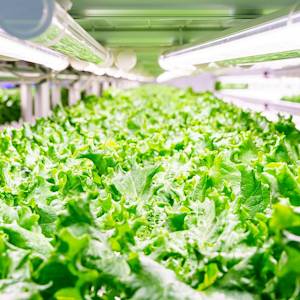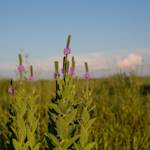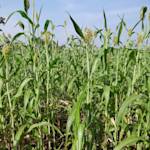Organic and biodynamic arid farming in Egypt
1977 CE • Egypt
"It was 1977 when the late Dr. Ibrahim Abouleish and his wife Gudrun started farming in an untouched section of the Egyptian desert, some 60 kilometres northeast of Cairo . . . within a few short years, the couple had turned the arid landscape into an oasis, growing enough medicinal herbs and food ingredients that they could start exporting their harvest. Utilizing biodynamic farming methods, Abouleish demonstrated that sustainable agriculture is possible, even in the middle of the desert. The couple called their work the SEKEM initiative. Sekem is the Egyptian hieroglyph for “vitality of the sun.” It focuses on building healthy communities through sustainable, organic agriculture and social and cultural development . . . Today, Abouleish’s legacy is preserved through SEKEM’s continued work with more than 2,000 farmers and partner organizations. What started as a biodynamic farm has since evolved into a private company that produces and distributes sustainable food, cotton, and herbal medicine products in Egypt, Europe, and North America . . . With its diversified product line, SEKEM has demonstrated that positive environmental impact, social development, and business sustainability aren’t mutually exclusive goals. Since 1977, the company has strived to restore and maintain the vitality of soil and local biodiversity using organic and biodynamic farming . . . Among other practices, the company’s cultivation plan involves crop rotation . . . Compost is used as an organic fertilizer and is critical for building up the organic matter in sandy desert soils. A further eight biodynamic preparations are used to enhance the soil... “There is more life in one handful of biodynamic soil than there are people on this Earth,” says Johannes Valentien, an agricultural co-worker in SEKEM . . . As a result of its various ecological practices, SEKEM is proudly carbon positive. This means its operations sequester more carbon dioxide through its agricultural activities than it emits."
"Sekem: From the Egyptian Desert Rises New Life," Global Alliance For The Future Of Food.
Image: The U.S. National Archives, Public domain


Learn about Maya Lin’s fifth and final memorial: a multi-platform science based artwork that presents an ecological history of our world - past, present, and future.

Discover ecological histories and stories of former abundance, loss, and recovery on the map of memory.

Learn how we can reduce our emissions and protect and restore species and habitats – around the world.

See how art can help us rethink the problems we face, and give us hope that each one of us can make a difference.

Help make a global memorial something personal and close to home. Share your stories of the natural world.


